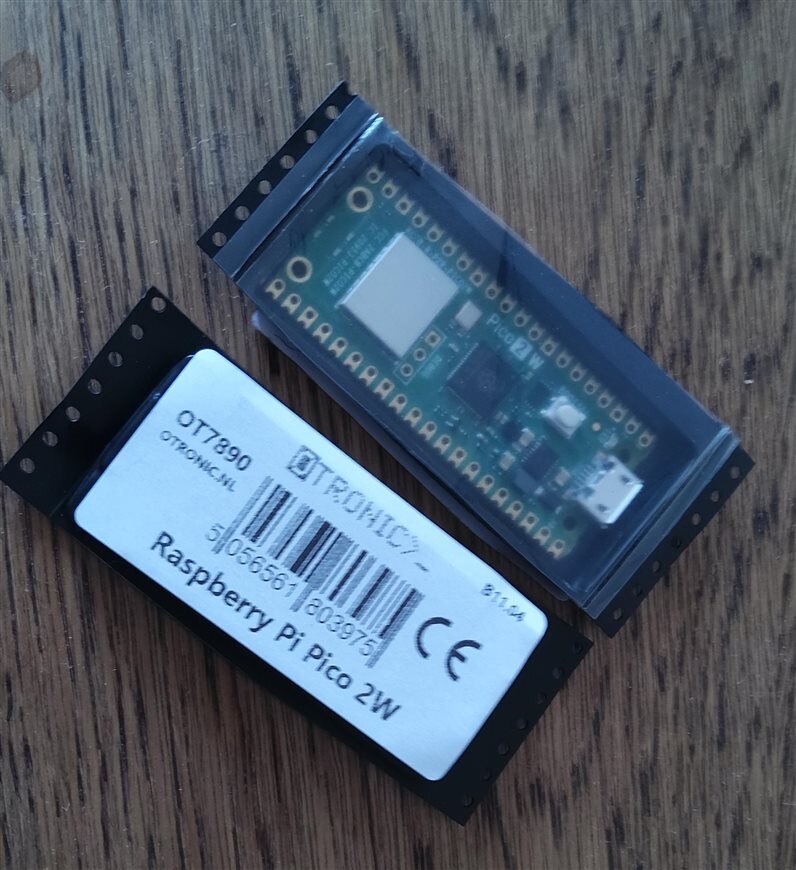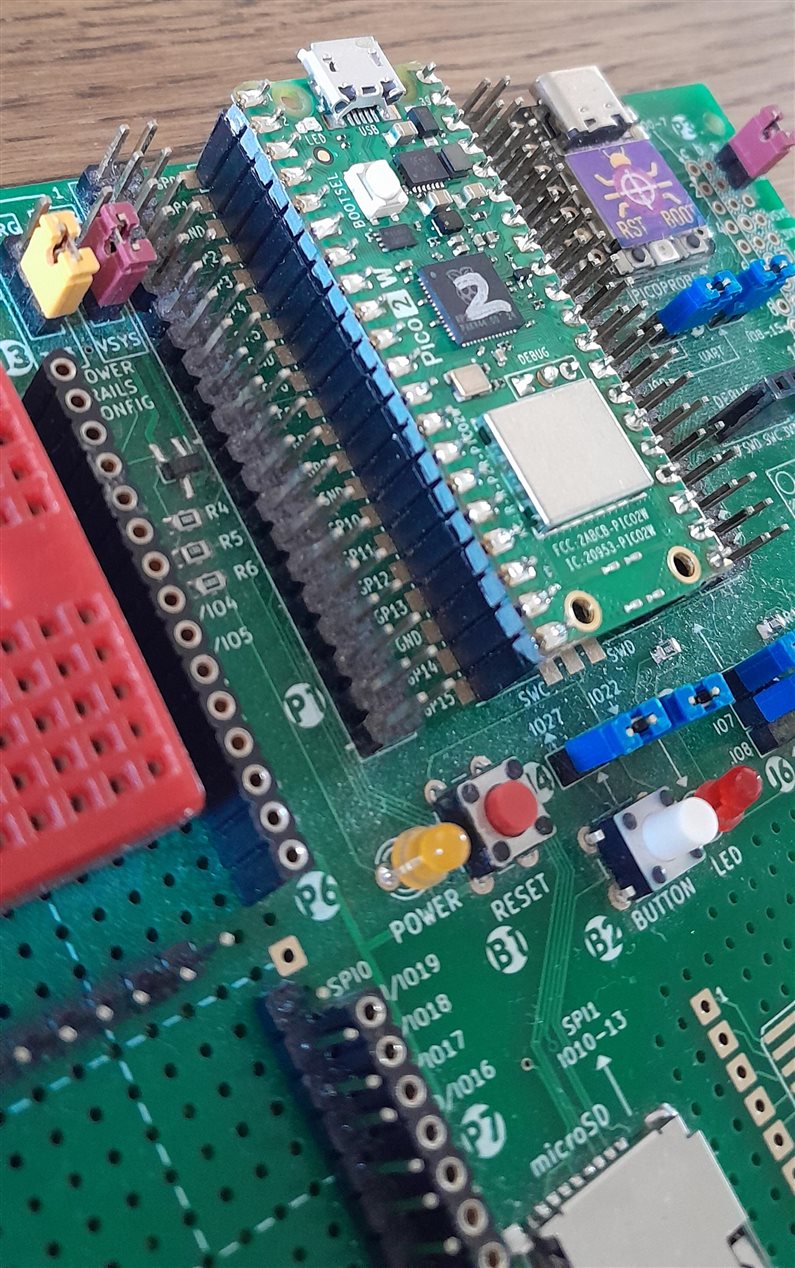I purchased 2 Raspberry Pico 2W. To try the RISCs.

The 3 things that I want to get going first:
debug session on 1 RISC with PicoProbe
FreeRTOS SMP running on the 2 RISCS
use 3 PIOs (I used the 3rd pio with the stepper motor design I made earlier)

customer action photo: Pico 2W on a pico-eurocard

customer action photo: Pico 2W runs 10 stepper motors on 3 PIOs





